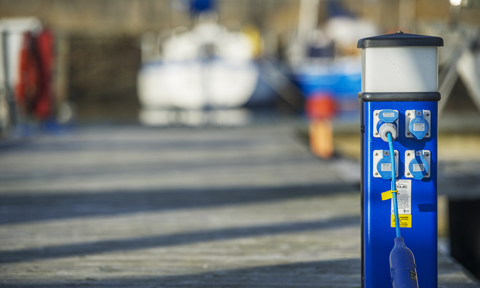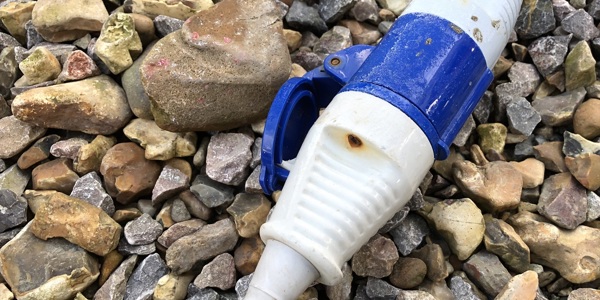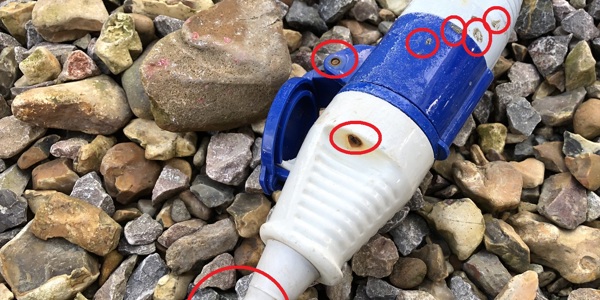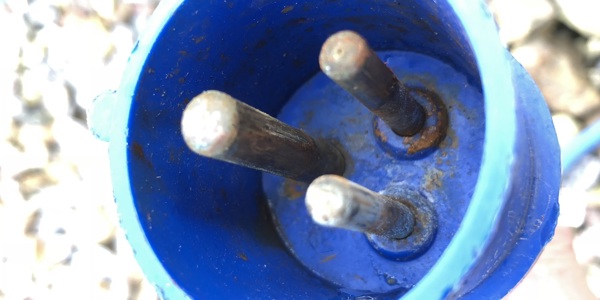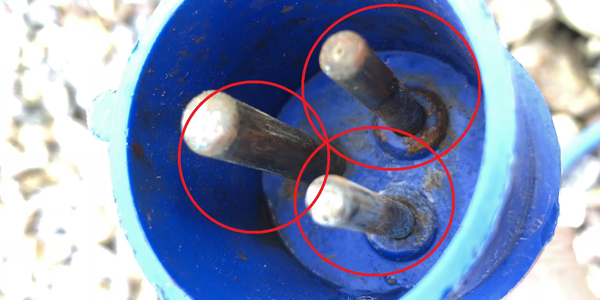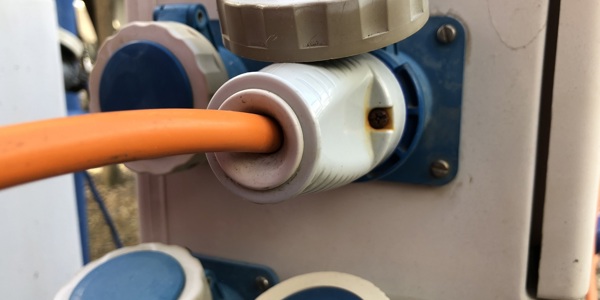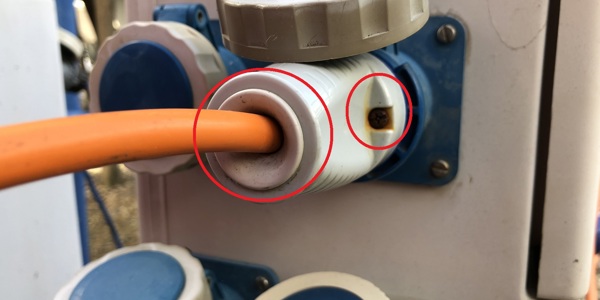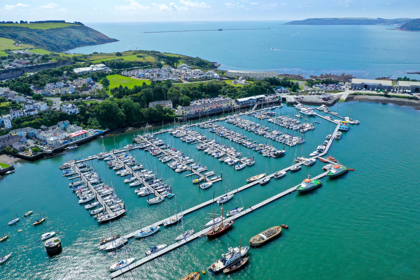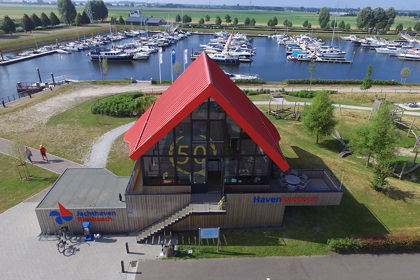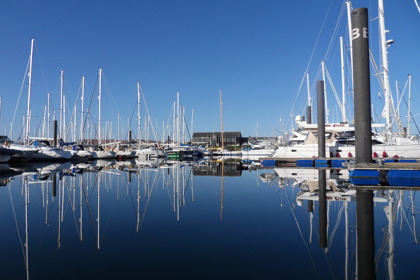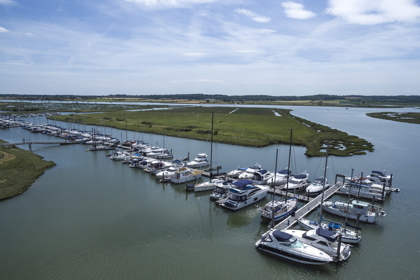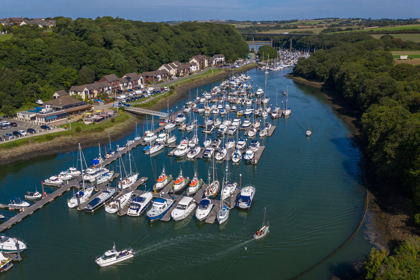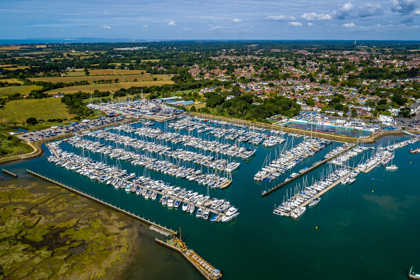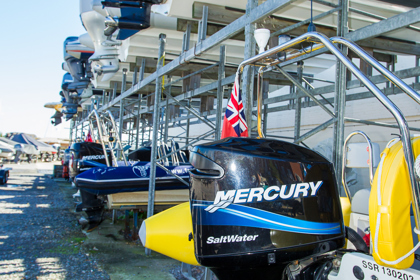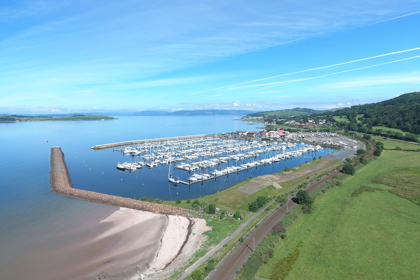It's that time of year when we see many boats having trouble with their shore power connections. In many instances, we find reasons that were potentially avoidable. We've therefore compiled a list of top tips when it comes to electricity cables...

Before we start, an important Safety notice
Electricity meters must be placed on the pontoon and not onboard any vessel.
For safety reasons, please ensure your meter is positioned on the pontoon, not onboard within a locker or below deck. We have had witnessed several incidents of meters catching fire and so they must be placed on the pontoons (in on the ground in the boatyard) to minimise the risk.
A reminder that all boats plugged into an electricity supply (afloat or ashore) must have a metered cable. We also strongly advise the use of IP67 plugs and sockets which is the highest waterproof rating available.
The Basics
Which cables should I use?
We also strongly advise the use of IP67 plugs and sockets which is the highest waterproof rating available.
Using your meter
- All boats using electricity must have a metered cable
- If you are a new Berth Holder or you have a new meter, please provide us with the serial number and your first meter reading prior to plugging in
- When using your meter, please ensure it is placed on the pontoon, next to the bollard ensuring it will not be a trip hazard
- We will take readings from your meters quarterly and invoice you accordingly
- Any boats plugged in with no meter will be assumed to be drawing electricity and charged the daily rate.
Troubleshooting
Why has my electricity tripped?
There are generally two reasons for tripping:
- Power overload - there are too many appliances switched on at once, or the initial spike in powering up certain appliances overloads the trip. Trip switches in the marina environment are required to be extra sensitive compared to your standard home switchboards.
- Earth issues - water, in any part of the circuit, will cause the system to trip.
Water & electricity
Whatever your waterproof rating, water can travel through one plug into another causing rust, corrosion and earth issues. Water can enter the plug through a large hole around the cable, travel through the plug, along the pins and into the socket that it is attached to, ultimately ruining both.
As a result, an electrical circuit is only as good as its weakest link - even brand new meters will only work efficiently if plugs and sockets aren't exposed to water.
Advice
Red flashing light
On your meter, you will notice a red flashing light. You can roughly gauge how much electricity you are drawing as the speed of this flash will increase with the amount of electricity you are consuming. The flashing red may turn into a full red light. As soon as this full red light appears, you should address the issue immediately as your meter is faulty.
Damaged circuits
Any plug that shows signs of rust or corrosion should be replaced immediately. Rust can cause increased resistance resulting in a build up of heat and the risk of melting plugs. You should avoid trying to nurse a plug or socket by taping up the weak spots. This is ultimately a safety issue but it will also ensure you don’t suffer the inconvenience of a loss of power at an inconvenient time, and reduce the risk of damage to your meter.
In extreme cases, a short circuit has the potential to damage a meter which would not be covered by the meter's warranty.
Plugs, sockets & cables don't last forever!
In the marine environment, damage is inevitable and rubber seals perish over time.
By ensuring you use IP67 rated equipment, and taking basic steps to ensure your equipment stays in good condition, you will be best placed to survive in the hostile marine environment which they live.
Example #1
- This is not an IP67 plug
- Rust is visible on the exterior which means it is likely to be rusty inside
- The gasket join between the cable and the plug is torn which means water can easily penetrate the inside of this plug
Example #2
- The pins are heavily rusted and corroded due to water penetration
- The water has travelled through the back of the plug into the pins.
- Water can now subsequently be passed to the next plug
- This setup can cause hot spots, leading to electrical shorts and the potential to damage the meter
Example #3
- If rust is visible on the exterior (on the screws in this case) then it is cause for concern
- The join between the cable and the plug doesn't have sufficient casing and water protection
- Over time, this will cause the plug to damage quicker than an IP67 plug.

Here to help
Our Haven Team are on-site 7 days a week so please do not hesitate to come to the marina office for some free, impartial advice, or if you're experiencing any issues. We'll be happy to help and/or recommend some local marine electronics experts to provide you with any further assistance.

